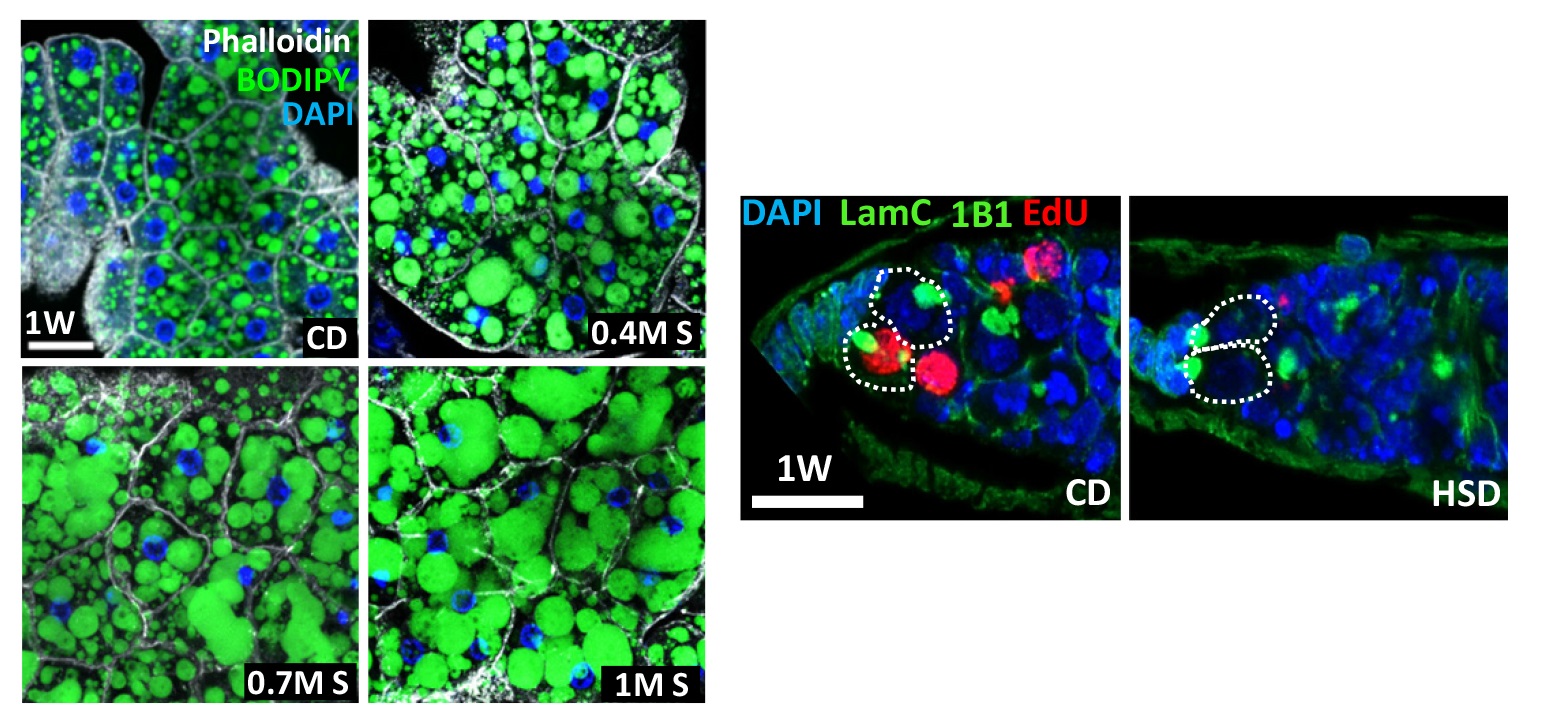Excess dietary sugar impairs Drosophila adult stem cells via elevated reactive oxygen species-induced JNK signaling
- Author:Wei-Hao Huang , Kreeti Kajal , Ryan Himawan Wibowo , Oyundari Amartuvshin , Shih-Han Kao, Elham Rastegari, Chi-Hung Lin , Kuan-Lin Chiou, Hai-Wei Pi, Chau-Ti Ting , Hwei-Jan Hsu
- Journal: Development https://doi.org/10.1242/dev.201772
Selected as a Research Highlight: https://journals.biologists.com/dev/article/151/1/e151_e0101/339934/High-sugar-diets-make-flies-sickly-sweet
High-sugar diets (HSDs) often lead to obesity and type 2 diabetes, both metabolic syndromes associated with stem cell dysfunction. However, it is unclear whether excess dietary sugar affects stem cells. Here, we report that HSD impairs stem cell function in the intestine and ovaries of female Drosophila prior to the onset of insulin resistance, a hallmark of type 2 diabetes. Although 1 week of HSD leads to obesity, impaired oogenesis and altered lipid metabolism, insulin resistance does not occur. HSD increases glucose uptake by germline stem cells (GSCs) and triggers reactive oxygen species-induced JNK signaling, which reduces GSC proliferation. Removal of excess sugar from the diet reverses these HSD-induced phenomena. A similar phenomenon is found in intestinal stem cells (ISCs), except that HSD disrupts ISC maintenance and differentiation. Interestingly, tumor-like GSCs and ISCs are less responsive to HSD, which may be because of their dependence on glycolytic metabolism and high energy demand, respectively. This study suggests that excess dietary sugar induces oxidative stress and damages stem cells before insulin resistance develops, a mechanism that may also occur in higher organisms.


